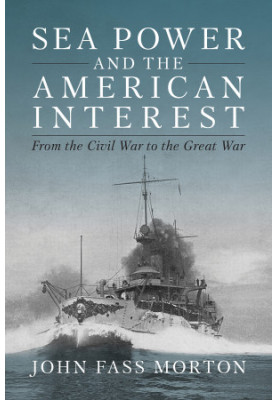Sea Power and the American Interest
 Instant download
Instant download
after payment (24/7)
 Wide range of formats
Wide range of formats
(for all gadgets)
 Full book
Full book
(including for Apple and Android)
From the Civil War to the Great War, the transatlantic commercial trading system that dated from the nation’s colonial times continued in America. By 1900, the sustainability of this Atlantic System was in the material interest of an industrial America on which its aggregate national prosperity depended. The principal beneficiary of this political-economic reality was the American moneyed interest centered in the Northeast, with New York City at the heart. Author John Fass Morton explains how this country came to put a value on commercial opportunities overseas in support of America’s steel industry. Europeans and Americans alike pursued informal empires for resource acquisition and markets for surplus capital and output. Morton looks at how U.S. policy found consensus around the idea of empire, taking stock of the opening of Latin American and Chinese markets to American commerce as a means for averting socially destabilizing economic depressions. Republican administrations reflected Wall Street finance and America’s other three Madisonian interests—commercial, manufacturing, and agrarian—with the Open Door and Dollar Diplomacy policies to establish fiscal protectorates in Central America and the Caribbean. Undergirding Dollar Diplomacy was their commitment to “a great navy” that would be the “insurance” for an ongoing American interest that Dollar Diplomacy represented. With the strategic arrival of the petroleum sinew and the Wall Street reassessment of the Open Door in China, the Wilson administration tilted toward protecting American investments in the hemisphere—notably in Mexico—with a “Big Navy.” With Wilson, a progressive foreign policy establishment arrived while continuing to reflect the transatlantic internationalism of the Northeast moneyed interest. As a twentieth century progressive institution, the Navy would thus sustain an American expansion that was now progressive. The Navy story from the Civil War to the Great War reveals a truth. The foundation
LF/220625/R
Data sheet
- Name of the Author
- John Morton
- Language
- English
- ISBN
- 9781682479124
- Release date
- 2024
















